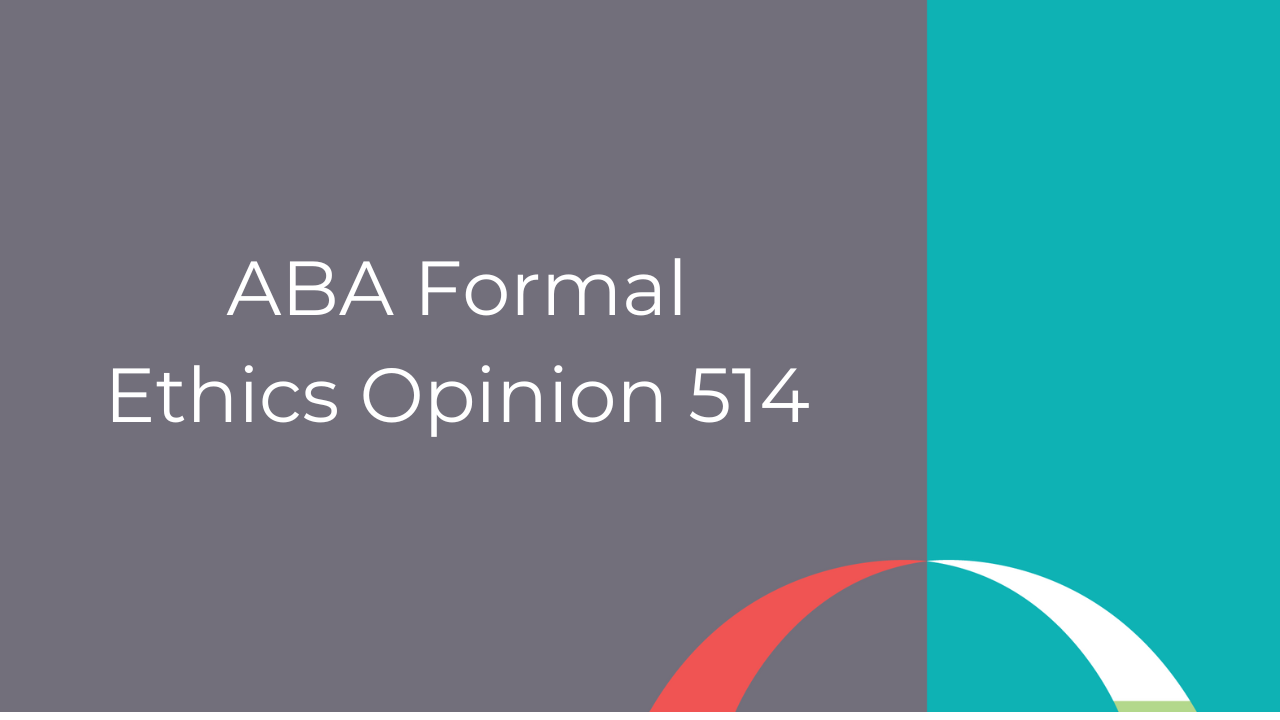
ABA Formal Ethics Opinion 514
The ABA Standing Committee on Ethics and Professional Responsibility has issued ABA Formal Ethics Opinion 514 – A Lawyer’s Obligations When Advising an Organization About Conduct that May Create Legal Risks for the Organization’s Constituents
On January 8, 2025, the American Bar Association (ABA) issued Formal Opinion 514, providing guidance for lawyers advising organizations, particularly when proposed actions may have legal implications for individual constituents such as employees, officers, or board members. This opinion emphasizes the importance of clear communication regarding the lawyer’s role to prevent misunderstandings and ensure ethical compliance.
Key Ethical Duties Highlighted:
- Competent Representation (Model Rule 1.1): Lawyers must possess the necessary legal knowledge and skill to provide competent representation to their organizational clients.
- Communication (Model Rule 1.4): Effective communication with the organization’s constituents is essential, ensuring they understand the lawyer’s role and the legal implications of proposed actions.
- Candid Advice (Model Rule 2.1): Lawyers should offer honest and straightforward advice, even when it may be challenging for the organization’s constituents to hear.
The opinion underscores that while lawyers provide advice to the organization, this is often conveyed through its constituents–employees, officers, board members. There is a risk that these individuals might misinterpret the lawyer’s role, mistakenly believing the lawyer represents them personally, among other issues To mitigate this, the ABA advises lawyers to clarify their role early and reiterate it throughout the relationship. This proactive approach helps prevent potential conflicts of interest and maintains the integrity of the lawyer-client relationship.
This is one-way lawyers can navigate the complexities of organizational representations, ensuring ethical obligations are met and fostering trust within the organization.
Recent Posts
Your Law Firm Has Lawyers Working Remotely. Where, exactly?
Understanding the Corporate Transparency Act: A Guide for U.S. Businesses
Rule 1.1 – Competence: An Overview
Should Non-lawyers be Permitted to Own Law Firms?
Notice Anything? How to Handle Law Firm Notice Provisions for Departing Partners

